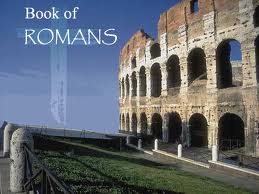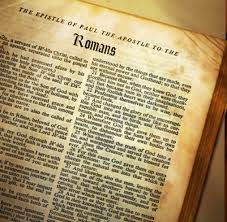June 9th, 2012
Misquoting the Scriptures
 We all know quite well how much damage can result from a negligent or inaccurate transmission of information. One of the notable examples of such a practice is deliberate misquoting of someone else’s words. Our “free, democratic” political machine in the West, for example, has been plagued by the practice of intentional falsification of information perpetrated by groups and individuals from across the political spectrum. Every time a political campaign rolls by, the voters get subjected to a barrage of falsehood, misrepresentation and other lies designed to win the elections at all costs.
We all know quite well how much damage can result from a negligent or inaccurate transmission of information. One of the notable examples of such a practice is deliberate misquoting of someone else’s words. Our “free, democratic” political machine in the West, for example, has been plagued by the practice of intentional falsification of information perpetrated by groups and individuals from across the political spectrum. Every time a political campaign rolls by, the voters get subjected to a barrage of falsehood, misrepresentation and other lies designed to win the elections at all costs.
Falsification of an existing speech or text may assume different shapes and forms. One can distort the message of the document by: 1) adding to or deleting from it; 2) taking the words out of their intended context; 3) compiling some unrelated fragments of the text into a new composite “quotation,” etc. All of these manipulations are indisputably dishonest and deserve our righteous condemnation.
Consider the following text, for instance: “The American people are willing to do all in their power to fight terrorists both at home and abroad. The enemies of America and the rest of the free world are bent on destroying the very foundation of a democratic society, loathing the free West and calling it the great Satan.” By removing a few words between the two consecutive sentences, we can produce an entirely distorted picture of reality: “The American people are . . . bent on destroying the very foundation of a democratic society, loathing the free West and calling it the great Satan.” – This is a very simple but colorful example of a calculated misquotation of the original passage.
Here is another example: Imagine a US Senator giving a speech in Congress concerning Iranian threat to Israel’s existence. Remembering that Israel is our closest and staunchest ally in the entire Middle East, the Congressman states among many other things: “ . . . In its obscene arrogance, Iran boldly declares that Israel should be wiped off the face of the earth. We, the American people, cannot agree with Iran that Israel should cease to exist as a nation!” –
Once again, by omitting a few crucial words from the intended speech, we can arrive at something grossly distorted: “ . . . Iran boldly declares that Israel should be wiped off the face of the earth. We, the American people, . . . agree with Iran that Israel should cease to exist as a nation!” How would you like to be fed that kind of information instead of the original truth?! I, for one, would like to have nothing to do with such unacceptable misrepresentation of the facts. As you can see, my examples of how an existing document can be misquoted are very simplistic and designed to showcase how outrageous the distortion is. The real-life cases of misrepresentation through misquoting are, quite often, subtler and more deceptive.
 Precise transmission of facts becomes particularly crucial during times of wars and crises. Thus, for instance, any imprecise information or, even worse, deliberate misinformation sent during military actions can easily lead to a substantial loss of life and may cost the careless party their victory as well. The Bible tells us over and over again that we are positioned right in the heat of the Great Cosmic Battle between the forces of Good and those of the Evil One.
Precise transmission of facts becomes particularly crucial during times of wars and crises. Thus, for instance, any imprecise information or, even worse, deliberate misinformation sent during military actions can easily lead to a substantial loss of life and may cost the careless party their victory as well. The Bible tells us over and over again that we are positioned right in the heat of the Great Cosmic Battle between the forces of Good and those of the Evil One.
The significance of precise conveyance of unadulterated spiritual truth, therefore, cannot be overestimated! The Word of God is the most reliable transmitter of such a truth. Unfortunately, not all the keepers of that sacred treasure have proven trustworthy in their task of faithful preservation of God’s Unchangeable Word. Today, we will cast a rather puzzled look at a vivid case of intentional misrepresentation of biblical facts found on the pages of the New Testament!
St. Paul and Our Righteousness
 It is sad to say that some of the most foundational building blocks of Christian belief system happen to be nothing more than clever and purposeful misinformation. To illustrate this baleful reality, we shall examine a small portion from the writings of the Apostle Paul. Along with other authors of New Testament books, Brother Paul understood the importance of adducing texts from the Hebrew Scriptures as a reliable witness to what he was teaching the Church. That is the reason behind an extensive amount of “Old Testament” quotations found in his theological treatises.
It is sad to say that some of the most foundational building blocks of Christian belief system happen to be nothing more than clever and purposeful misinformation. To illustrate this baleful reality, we shall examine a small portion from the writings of the Apostle Paul. Along with other authors of New Testament books, Brother Paul understood the importance of adducing texts from the Hebrew Scriptures as a reliable witness to what he was teaching the Church. That is the reason behind an extensive amount of “Old Testament” quotations found in his theological treatises.
One of the most central teachings to the Apostle Paul’s philosophy is the dogma that our salvation is effected solely through our faith in the death and resurrection of Jesus Christ. I heartily concur with Brother Paul in that our salvation and righteousness come exclusively from the hand of the Living God, the LORD God of Israel, that is. In addition to His holy Torah, whose commandments teach us obedience, holiness, righteousness, self-control, and a host of other god-like virtues, the Holy One of Jacob provided the Sacrificial Lamb of God in the person of the Jewish Messiah. By placing our faith, trust and hope in the LORD God of Israel and approaching His throne of Grace acknowledging the blood of the Lamb, we find peace and reconciliation with our Creator. This truth, however, cannot and should not obviate the need to live a life of obedience to God’s eternal commandments (as we argue eloquently in our “Treatise on Righteousness).
In his zeal to create an entirely new religious and philosophical entity, namely the Gentile Church that is still flourishing around us, the Apostle Paul took his doctrine of salvation by faith to a whole new level. Although his emphasis on our total dependence on God for salvation and righteousness is biblical, his jealous repudiations of God’s Law (Torah) and our obedience to His Commandments constitute a breach with what the LORD communicated to His people at the very beginning. Knowing full well that his novel philosophy would not stand on its own, brother Paul turned to the practice of creative misquoting of the most revered document of all antiquity, - the Hebrew Scriptures. Let us discover if Saint Paul was careful and precise when he quoted from the Holy Bible!
Romans 3
 In Chapter 3 of his most famous theological treatise, Paul begins by confirming the truism that the Hebrew Scriptures are the Word of the Almighty: “What advantage, then, is there in being a Jew, or what value is there in circumcision? Much in every way! First of all, they have been entrusted with the very words of God.” (Rom. 3:1-2) – He then proceeds to repudiate the claims, made by the Jews for millennia, that keeping of God’s Law was essential if a person desired to be righteous in God’s sight.
In Chapter 3 of his most famous theological treatise, Paul begins by confirming the truism that the Hebrew Scriptures are the Word of the Almighty: “What advantage, then, is there in being a Jew, or what value is there in circumcision? Much in every way! First of all, they have been entrusted with the very words of God.” (Rom. 3:1-2) – He then proceeds to repudiate the claims, made by the Jews for millennia, that keeping of God’s Law was essential if a person desired to be righteous in God’s sight.
With a swift stroke of pen, the great Church theologian concludes the entirety of humanity, both the Law-abiding Jews and the lawless Gentiles, under the same condemnation: “What shall we conclude then? Are we any better? Not at all! We have already made the charge that Jews and Gentiles alike are all under sin. As it is written: . . .” (vv.9-10) – Cleverly, the great Apostle inserts a powerful phrase - “It is written . . .” - to show to his audience that what he is saying is fully supported by the Holy Scriptures! So, what is it that Paul is going to show us as “written” in the Hebrew Scriptures?
What follows is a lengthy “Old Testament” quote, composed of no less than seven different texts, culled from all over the Hebrew Bible! Here is Paul’s creative compilation: “There is no one righteous, not even one; there is no one who understands, no one who seeks God. All have turned away, they have together become worthless; there is no one who does good, not even one.” “Their throats are open graves; their tongues practice deceit.” “The poison of vipers is on their lips.” “Their mouths are full of cursing and bitterness.” “Their feet are swift to shed blood; ruin and misery mark their ways, and the way of peace they do not know.” “There is no fear of God before their eyes.” (Rom. 3:11-18) -
To an unsuspecting student of this New Testament passage, the proof supporting Paul’s argument seems to be truly overwhelming! And so, together with the Apostle Paul himself and in unison with the Christian from the pages of the “Pilgrim’s Progress” one is ready to exclaim: “Poor me! Wretched man that I am! Who will deliver me from this body of death!” This has been an established mode of thinking and the paradigm for faith within Christendom for millennia! To imagine that it is based on a clear-cut case of falsification makes it painful indeed! Have you given it any thought at all?!
The Saint rounds up his argument by concluding: “Now we know that whatever the law says, it says to those who are under the law, so that every mouth may be silenced and the whole world held accountable to God. Therefore no one will be declared righteous in his sight by observing the law; rather, through the law we become conscious of sin.” (vv. 19-20) – Paul’s reasoning appears to be biblical, logical and quite neat in its denunciation of God’s Law as some relic from the past suitable only for pointing our sins out to us. In our reflection entitled “Treatise on Righteousness” we deal with this supposition and uncover it to be contrary to the plain Word of God!
 Today, our chief concern is with whether Paul is citing his references faithfully and according to their intended meaning. Let us take the Apostle’s lengthy quotation apart and examine his logic while doing so!
Today, our chief concern is with whether Paul is citing his references faithfully and according to their intended meaning. Let us take the Apostle’s lengthy quotation apart and examine his logic while doing so!
1) (Rom. 3:10) - “ . . . There is no one righteous, not even one; . . .” – This phrase, concocted by the great Apostle himself, serves as a blanket statement that covers under the same condemnation the entirety of humanity, both the Jews who cling to the notion of faithful obedience to God’s Commandments, and the Gentiles, who trample on each and every moral precept of God’s Law. Paul’s introductory statement is but a loose paraphrase of Ecclesiastes 7:20. The Apostle’s agenda is to drive home the point that no one can even be called “righteous” before the Holy God! Is that really what the text in Ecclesiastes 7 conveys?
Here it is: “There is not a righteous man on earth who does what is right and never sins.” (Ecc. 7:20) – As you can see, Ecclesiastes states an obvious fact that all human beings, even the best of them, commit sin once in a while. In other words, Ecclesiastes affirms that even the righteous people, (and that is exactly what he calls them), make missteps in their walk with the LORD.
Besides, we all know for a fact that Ecclesiastes did not set out to repudiate God’s Law as unnecessary to attaining righteousness in God’s eyes. The conclusion of the Book highlights the author’s true theological colors: “Now all has been heard; here is the conclusion of the matter: Fear God and keep his commandments, for this is the whole duty of man.” (Ecc. 12:13) – Did Paul misunderstand Ecclesiastes’ message or simply “tweaked” it a bit to make the point? But it gets even more interesting as we go deeper into the Apostle’s reasoning!
2) (Rom. 3:11-12) - “ . . . there is no one who understands, no one who seeks God. All have turned away, they have together become worthless; there is no one who does good, not even one.” – Once again, the burden of the Apostle’s theology here is to show that all people, both Jews and Gentiles, are completely worthless and cannot be considered or called “righteous” under any circumstances.
This time, Paul is lifting up his quote from Psalm 14:2-3. Although the words themselves are fairly close to what the Psalm contains, the chief theologian of the Church ignores the context of the verse without even blushing in the process. The text that Paul uses in his attempts to denigrate the Jewish faith and practice is snugly “sandwiched” between the verses of the Psalm that make its meaning unmistakable! Are you ready to see the text in its proper textual setting?
The words in the Psalm that directly precede St. Paul’s quotation are as follows: “The fool says in his heart, “There is no God.” They are corrupt, their deeds are vile; there is no one who does good. The LORD looks down from heaven on the sons of men . . .” (Ps. 14:1-2) – Does this sound as something spoken about people who walk in the ways of the LORD and keep His commandments? King David, who wrote this Psalm, was a great lover of God’s Law and His decrees. In many other places within his poetic praises of God and His Law, David expresses his utter earnestness in keeping God’s holy commandments!
Immediately following the quote lifted by the Saint are the following words: “Will evildoers never learn—those who devour my people as men eat bread and who do not call on the LORD? There they are, overwhelmed with dread, for God is present in the company of the righteous.” (Ps. 14:4-5) – As you can see here, there is a very clear juxtaposition of the wicked, who disregard God’s Law, with the righteous, who keep His Commandments! The words of the Psalm 14, which Paul quotes in his treatise on righteousness in Romans 3 describe the godless individuals, whose godlessness is expressed in their blatant disregard for God’s righteous requirements of the Law. Those who keep His Law are proclaimed righteous! How faithful is the Apostle Paul in quoting this text?!
 3) (Rom. 3:13) - “Their throats are open graves; their tongues practice deceit.” “The poison of vipers is on their lips.” – It seems as if Paul is bent on scaring his readers out of their wits concerning their own state of total depravity and unrighteousness. I think that if we did not have the Hebrew Scriptures to correct the course of our faith, this great Gentile theologian could have succeeded in his philosophical pursuits!
3) (Rom. 3:13) - “Their throats are open graves; their tongues practice deceit.” “The poison of vipers is on their lips.” – It seems as if Paul is bent on scaring his readers out of their wits concerning their own state of total depravity and unrighteousness. I think that if we did not have the Hebrew Scriptures to correct the course of our faith, this great Gentile theologian could have succeeded in his philosophical pursuits!
This one-liner is actually a composite quote, slapped together by Paul from two different sources, namely Psalm 5:9 and 140:3. Let us take a look at both of them! We encourage you to read all of these texts in their entirety. Here is the flow of Psalm 5: “Give ear to my words, O LORD, consider my sighing. Listen to my cry for help, my King and my God, for to you I pray. . .” (vv.1-2) – This Psalm is one of David’s prayers for help addressed to his faithful God. – “You are not a God who takes pleasure in evil; with you the wicked cannot dwell. The arrogant cannot stand in your presence; you hate all who do wrong.” (vv. 4-5) – Once again, those who do wrong, (the unrighteous), are contrasted with those who do right, (the righteous). God is shown to be pleased with the righteous and displeased with the unrighteous.
These are words that introduce the verse that Brother Paul quotes in Romans: “Lead me, O LORD, in your righteousness because of my enemies— make straight your way before me.” (Ps. 5: 8) – It is clear that those, whose “throats are open graves and whose tongues practice deceit,” as Paul quotes it, are, in fact, the enemies of David. They are shown to be in opposition to all who follow in the ways of God’s righteous Law! The fact that our learned Apostle takes this line and applies it to everybody across the board hardly seems to be a faithful way of quoting the Bible! What do you think?
The Psalm concludes with another unmistakable parallel drawn between the faithful observers of God’s Law and those who willfully trample on its holy commandments: “Declare them guilty, O God! Let their intrigues be their downfall. Banish them for their many sins, for they have rebelled against you. But let all who take refuge in you be glad; let them ever sing for joy . . . For surely, O LORD, you bless the righteous; you surround them with your favor as with a shield.” (vv. 10-12) – Now, you tell me if Paul’s “creative” quoting from this Psalm could be more misleading that it already is!?
What about Psalm 140:3, which makes up the second part of Romans 3:13? Simply by reading the Psalm from its first verse, as it was intended to be read, we see the text in its original context: “Rescue me, O LORD, from evil men; protect me from men of violence, who devise evil plans in their hearts and stir up war every day. They make their tongues as sharp as a serpent’s; the poison of vipers is on their lips. . .” (Ps. 140:1-3) – So, who are these folks, who have the poison of vipers on their lips? The great Apostle wants us to believe that the text speaks of all the people indiscriminately, both the observant Jews and the lawless Gentiles! But that is not the case, however, - not by a long shot!
The Psalm ends with another vivid comparison between the righteous, who keep God’s requirements, and the wicked, who oppose them: “Let the heads of those who surround me be covered with the trouble their lips have caused . . . Surely the righteous will praise your name and the upright will live before you.” (vv.9,13) – Read the Psalm in its entirety and see if Brother Paul is doing justice to these verses by ripping the bits and pieces of these texts out of their flow!
 4) (Rom. 3:14) -“Their mouths are full of cursing and bitterness.” – Is this truly what the Bible asserts with regard to all human beings? Or, perhaps, this also applies to the people who engage in flagrant violation of God’s Holy Law? Let us examine the source! The quote comes from Psalm 10:7.
4) (Rom. 3:14) -“Their mouths are full of cursing and bitterness.” – Is this truly what the Bible asserts with regard to all human beings? Or, perhaps, this also applies to the people who engage in flagrant violation of God’s Holy Law? Let us examine the source! The quote comes from Psalm 10:7.
Placing the verse in its proper context, we have the following picture: “Why, O LORD, do you stand far off? Why do you hide yourself in times of trouble? In his arrogance the wicked man hunts down the weak, who are caught in the schemes he devises. He boasts of the cravings of his heart; he blesses the greedy and reviles the LORD. . . His mouth is full of curses and lies and threats; trouble and evil are under his tongue . . . He says to himself, “God has forgotten; he covers his face and never sees.”” (Ps. 10:1-11) – Although Brother Paul wants us to believe that everybody’s mouth is “full of cursing and bitterness,” the original text ties this colorful concept with the wicked in the Land! Who is right?
5) (Rom. 3:15-17) - “Their feet are swift to shed blood; ruin and misery mark their ways, and the way of peace they do not know.” – These verses were borrowed by Paul from the Book of Isaiah. Quite unsurprisingly, the quote, once again, refers to the breakers of the Covenant with their God. The entire 59th chapter of Isaiah is a rebuke to the law-breakers within Israel! The punch line, however, is found at the very end of that sad chapter.
The following prophecy, given by the LORD through His faithful Prophet Isaiah, refutes the Christian claims that their “New” Covenant has now replaced the one that existed between the Living God and His Chosen People, Israel. (See our presentation called “A New Covenant Believer?”): “As for me, this is my covenant with them,” says the LORD. “My Spirit, who is on you, and my words that I have put in your mouth will not depart from your mouth, or from the mouths of your children, or from the mouths of their descendants from this time on and forever,” says the LORD.” (Is. 59:21) -
As every genuine prophet of the Almighty, Isaiah was anointed with the Spirit of God to fulfill a very specific mission. The core of the prophetic mission consisted in calling the backsliding Israel back to their One God and His Torah! Having the Spirit of God and being inspired by the words of the Torah are declared to be at the heart of God’s Covenant with the faithful remnant within Israel! Fascinatingly enough, the “good news” passage found in Isaiah 61 and quoted by Jesus in Luke 4 is couched in the languages of Israel’s (Zion’s) restoration and her restored preeminence among the nations of the world! The bona fide New Covenant, therefore, presupposes our whole-hearted return to God’s Law and His truths!
6) (Rom. 3:18) - “There is no fear of God before their eyes.” – Finally, Brother Paul brings his “powerful” string of misquotations to a thundering crescendo of misinformation! It does not take a lot of time or efforts to verify the validity of this particular line by comparing it to the original, from which it is cited. It is located close to the beginning of Psalm 36, the text of which will bear its own testimony.
 The sweet singer of Israel (David) proclaims: “An oracle is within my heart concerning the sinfulness of the wicked: There is no fear of God before his eyes. For in his own eyes he flatters himself too much to detect or hate his sin. The words of his mouth are wicked and deceitful; he has ceased to be wise and to do good.” (Ps. 36:1-3) – Unlike their less-than-faithful Christian expositor, the Hebrew Scriptures are consistent in their message and never paint the righteous and the wicked with the same broad brush!
The sweet singer of Israel (David) proclaims: “An oracle is within my heart concerning the sinfulness of the wicked: There is no fear of God before his eyes. For in his own eyes he flatters himself too much to detect or hate his sin. The words of his mouth are wicked and deceitful; he has ceased to be wise and to do good.” (Ps. 36:1-3) – Unlike their less-than-faithful Christian expositor, the Hebrew Scriptures are consistent in their message and never paint the righteous and the wicked with the same broad brush!
Whereas the famous Apostle would have us believe that both the keepers of God’s Law as well as its despisers are equally abhorrent and unrighteous in God’s sight, the Bible makes a very clear distinction between the two groups of people! It is the wicked and lawless only, who do not have “the fear of God before their eyes.” The foil that sets their crookedness off is the righteous, who are faithful in obeying the LORD! Where do you stand in your walk?
Practical Exercise:
If we were to imitate Saint Paul and employ his method of quoting the Scriptures we could prove well nigh any new and strange doctrine! Here, take a listen to the following: “What shall we say then? - Are Christians any better off than worshippers of Molech? By no means! For it is written: ‘Finally, brothers, we instructed you how to live in order to please God (I Thess. 4:1): . . . You are to cling to worthless idols (Ps. 31:6) and eat unclean food (Hos. 9:3); despise God’s holy things and desecrate His Sabbaths (Ex. 22:8)! Therefore, make confession to the LORD, and do his will. Separate yourselves from the people around you and from your wives (Ez. 10:11), for it is good for a man not to marry at all (I Cor. 7:1). Finally, gouge out your right eye, cut off you right hand (Mtt. 5:29), and emasculate yourselves (Gal. 5:12), - for it is better for you to enter the kingdom of God maimed than to be thrown into hell fire (Mark 9:47)! The man who continues to do this, not forgetting what he has heard, but doing it—he will be blessed in what he does (James 1:25)!"
The compilation, (or rather abomination), above is a string of biblical quotations similar to what the Apostle Paul assembled in Romans 3. All of them were taken out of their proper context, knocked together and made to say what the author wanted them to. Even the key phrase “It is written” was inserted to give the passage the necessary gravitas! Thus, a ghastly new teaching was produced! I know that you are as mortified at this practice as I am!
Conclusion of the matter:
 The Book of Romans is a masterpiece of Pauline theology and represents the cornerstone, upon which the entire Christian doctrine of “Righteousness by faith, through grace alone” rests. While there are many biblically sound arguments within the pages of the Epistle, the reasoning supporting Paul’s argumentation in its Third Chapter is deeply flawed at its very core. In fact, the great Apostle builds his imposing philosophical case for the total depravity and absolute unrighteousness of all people on a non-existing base!
The Book of Romans is a masterpiece of Pauline theology and represents the cornerstone, upon which the entire Christian doctrine of “Righteousness by faith, through grace alone” rests. While there are many biblically sound arguments within the pages of the Epistle, the reasoning supporting Paul’s argumentation in its Third Chapter is deeply flawed at its very core. In fact, the great Apostle builds his imposing philosophical case for the total depravity and absolute unrighteousness of all people on a non-existing base!
Paul’s carefully-crafted text of Romans 3 consists of a string of “Old Testament” verses, unceremoniously ripped out of their respective contexts. Viewed in their original settings, though, each and every one of his references refutes his own line of reasoning! It stands to reason, then, that Brother Paul’s use of misinformation to bolster his theological teachings renders them null and void!
It is also highly unfortunate that Romans 3 is not the only instance of fabrication and misinformation coming from the hand of the revered Apostle. Every time when he, or any other author of the New Testament text for that matter, sets out to overturn the truths of the Torah, such as: eternality of God’s Holy Law, election of Israel, commandments concerning Sabbath-keeping, circumcision, clean foods, etc, he falls flat on his face and is shown to be a fraud by the plain witness of the Hebrew Bible!
We are also to conclude that God’s Law has never been changed or abrogated by the Almighty! The Messiah of Israel both kept it himself and affirmed its validity in his teachings (see Matthew 5:17). It follows quite logically, then, that the Law-despising and Commandment-breaking Christianity has nothing to do with the biblical faith in One God. The faith in the One God of Israel presupposes a conscientious keeping of His commandments as well!
Allow me to reinstate an axiomatic truth once again: the authority of all the New Testament writings and the level of their inspiration are directly derivative from their faithful compliance with the text of the Jewish Bible, - the Sacred Scriptures quoted by the Messiah himself! It is fair, for instance, when the writers of the Christian Scriptures build their theological case by scrupulously digging the revelation out of the Hebrew text. Twisting the Holy text by brazenly misquoting it, however, is a fraudulent activity, akin to satanic deceptions and bordering on blasphemy itself!
Here is how it works:
- Accepting Jesus of Nazareth as the Messiah of Israel, the High Priest in the order of Melchizedek, Sacrificial Lamb, etc is a case of “doing” theology on the basis of some “Old Testament” prophecies concerning the predicted Redeemer of Israel! Creating the Second Person of the divine Trio out of the same Jesus is an instance of perverting the existing Word of God and engaging in a thoroughly pagan enterprise!
- Working with the text of the Hebrew Scriptures to determine how best to be faithful in observing the proper seventh-day Sabbaths, keeping our kitchens kosher, celebrating God’s Holy Festivals of Leviticus 23, etc is a way to stay close to the One Living God! Trashing everything that “applied to the Old Testament Israel”, establishing your own worship days (Sunday) and feast occasions, banning circumcision and demonizing the Chosen Nation of Israel is how an entirely new cult was created!
In sum, every statement within the pages of the New Testament that flatly contradicts the following three pillars of the Holy Bible can be construed to be the work of crafty Church theologians, bent on having their own way in opposition to God’s holy way:
1) One God of Abraham, Isaac and Jacob, namely the LORD God of Israel (novelty – Trinity);
2) Israel’s status of the royal priesthood and holy nation, chosen by God to reveal His glories to the Gentiles (novelty – the Church has replaced Israel);
3) The eternal nature of God’s revelation on Sinai, namely the Torah (novelty - the New Testament has superseded the “Old Testament”)!
The questions addressed to you and me today are:
- Are we part of God’s faithful monotheists, - the remnant of the faithful Israel? (All who believe in One God, determine to live a life of obedience to His Commandments and join themselves to the Chosen People are firmly part of God’s Israel!);
- Are our lives governed by the truth of the Hebrew Bible or a millennia-long falsity of the heathen Church?
- Do we live our lives in the way acceptable to God and pleasing in His sight?
Reflect on these things and may the Gracious One guide you by His Spirit!
 We hope you have enjoyed delving into the Word of God and growing in the knowledge of the Almighty together with us! May the Holy One of Jacob bless you and keep you!
We hope you have enjoyed delving into the Word of God and growing in the knowledge of the Almighty together with us! May the Holy One of Jacob bless you and keep you!
Until next time - Shalom!